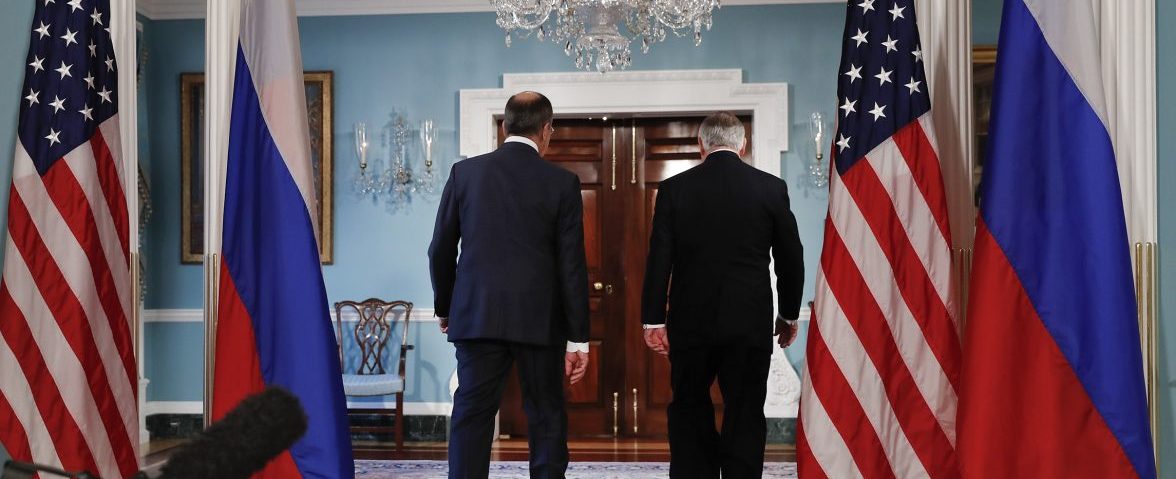The strategic interests of Russia and the United States come into conflict over many international issues. However, this is not the only reason for the current crisis in bilateral relations. Psychology is an important part of it. It’s amazing how little we know about the country and the people we are in conflict with – their motives, intentions and perceptions.
A phenomenon from psychology – the fundamental attribution error – could be used to describe Russia-US relations. It’s an inclination to explain other people’s behavior and actions with their bad qualities, and one’s own behavior by external circumstances. How is this exhibited in how the two countries see each other?
The Russians are convinced that the goal of US policy is to cause harm to Russia. Is this not what Zbigniew Brzezinski wrote in The Grand Chessboard? The Russian elite believes that the US is pressing Russia on all fronts, including the planning of the color revolutions, expanding NATO and strangling it with sanctions. The current political crisis in the United States is viewed by the Russians as a well-engineered show where the Democrats and Trump are playing their roles, but the essence of US politics remains the same.
Russians believe that the cascade of anti-Russia sanctions is totally unprovoked and is a continuation of the policy of containment against Russia. The takeaway is as follows: we were challenged, and we will not give in. The closest metaphor Russians can use to describe American politics is the popular television series House of Cards, where sinister and criminal politicians weave plots to gain full control over a situation.
The Americans use similar metaphors to describe Russian politics. The Democrats, the political mainstream groups and the media believe that the Russians have successfully conducted a special operation and have managed to introduce their own agent into the White House, and that they are rubbing their hands and maintaining their ominous silence. There are also those who believe that even though Trump may not be a special services agent, he is wreaking havoc, which is a direct fallout of Russian politics. Moreover, they believe that the Russians continue to interfere in US elections, this time the mid-term elections, while denying everything. Interference in America’s domestic affairs is completely intolerable, and the Americans are responding with a resolute, albeit incoherent, answer in the form of the sanctions.
What about the Republicans? They are less concerned about Russia and believe that the issue is about Trump and his personality. But, even if Russia has nothing to do with this, there is no reason to be sympathetic. Indeed, the United States will need this approach sometime down the road to contain China, but at this point there are no arguments that can be used to vote against the sanctions in the Senate.
Spy movies are a metaphor for Russian politics for much of the American elite. Take, for example, the recent blockbuster, Red Sparrow, where a former Russian ballerina is recruited by the KGB to become an agent specializing in seducing and compromising Western politicians. Notably, this film is based on a book by Jason Matthews, a CIA employee of 30 years. This is indicative of the level of American expertise on Russia.
A small group of Russian and American experts who continue to maintain contact with each other and with the political elite of both countries, are aware of how far from reality these two pictures are. If we try to identify the reasons for the differences in perception of the Russian and American elite, three things seem clear.
First, differences in socialization and formative experience. These are so different that the elite find it difficult to understand each other. Second, the difference between political cultures as a product of historical experience and national psychology. The Russians value stability, predictability and strive to manage conflicts based on pragmatism, whereas the Americans favor competition, an open expression of differences, consider the decentralized political system a boon and believe that ideology is good for politics. These differences in approaches prevent the Russian-American elite from correctly understanding each other. Recently a group of US Republican senators visited Moscow to try to find understanding with their Russian colleagues based on common values. They were disappointed. Upon return, Senator John Kennedy said that talking about political philosophy with Russians is like talking to the mafia. They apparently appreciate only the status, power and money. The Americans saw Russian pragmatism as cynicism.
Third and finally, the Russian and US elites see each other sporadically or not at all. At best, the short stories they manage to share with each other over a cocktail at infrequent meetings on the sidelines of official events serve as the basis for forming an image of each other. To an even greater extent, all of the above is true of the executive staff and officials in both countries who build their understanding of each other on the basis of popular cultural products or flamboyant authors like Dugin or Brzezinski.
Of course, the realization that, like us, the Americans are prone to paranoia provides some relief. In Russia, however, the onset happened 15 years earlier in connection with the fear of the color revolutions in the post-Soviet countries. It was believed that public protests against governments could occur only with the support of the United States. However, the realization of this assumption is of little consolation.
Currently, Russia-US relations are burdened by the seeds of a deeper crisis. Russians do not realize the importance of the issue of interference for Americans, just like Americans are heedless of the strategic consequences of the pressure of the sanctions. The allegorical wording that the Russian leaders use to refer to interference in order to tell the Americans “let’s reach an agreement and stop interfering in each other’s affairs” only reinforces the suspicion that even greater evil acts are planned for the upcoming election. On the other hand, the incoherent sanctions initiatives by the US establishment that are caused by resentment for interfering in the elections reduces the room to maneuver for Russia, and strengthens those in Moscow who consider the United States a strategic adversary. The situation is further complicated by both sides’ amateurish analysis of their adversary’s motives, which is most often based on paranoia.
In fact, the Veep comedy series is the most accurate metaphor for US policy and Russia-US relations. This is an ironic show about ridiculous self-centered officials forced to react chaotically to daily crises. Notably, in Russia, most believe the House of Cards – which is well translated into Russian and enjoys great success – is more life-like.
What do we do in this situation? You can wait until the crisis around Trump has subsided for one reason or another. However, it is better to invest in educating each other on their respective partner’s motivations. It is amazing that billion-dollar budgets, strategic plans and military preparations are built on such a flimsy foundation as insecurities and fears. Expertise should be measured by the hours of full-time communication with the people, the exact description of whom so much depends on. Today, this expertise in the political circles of both countries is near zero.
Original publication valdaiclub.com












